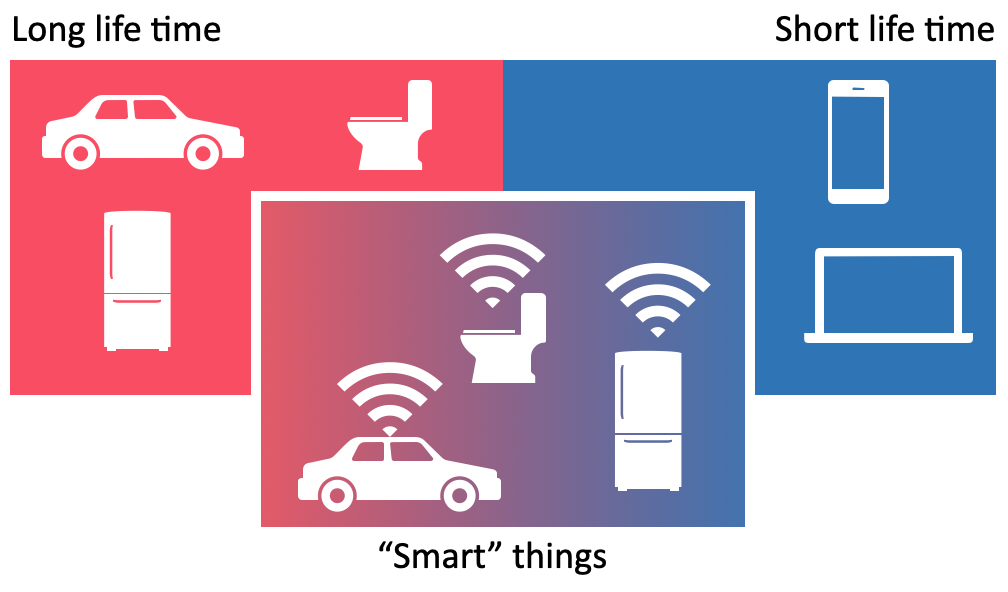IoT Security, Safety, Privacy and Waste
Let's first have a look at security in general in a video that also provides some context about IoT:
Safety in IoT
This is a video from the Computerphile Channel, where Ross Anderson explains the challenge with the Internet of things with regard to safety.
One of the main arguments in this video is that IoT creates a new category of device. Before, we had two types of devices:
- Devices with short lifetimes (2-5 years), like computers and mobile phones. During their short lifetimes, they receive monthly updates for security until they are replaced since there are much more powerful devices.
- Devices with long lifetimes (>10-20 years), like cars or fridges, which are engineered once, then tested but do not regularly receive updates.
With the IoT, the division between these two categories is getting blurry: A device that should have a long lifetime (like a car or a fridge) is combined with a components that has a traditionally short lifecycle (the embedded computer), and suddenly a device may need critical security updates several decades into the future!

Think about the dilemma with these different life cycles. Is this a reason why a smart fridge is really a bad product idea? Here is a nice article: Smart Fridges Are Still a Dumb Idea
Privacy in IoT
The following is an interview with Richard Stallman, the founder of the Free Software Foundation. The interview starts a bit awkward, but gets into the fundamental privacy issues raised by IoT.
Electronic Waste
Electronic waste in a general problem, but it has implications on what we need to consider when we want to understand the impact and challenges with the Internet of Things:
- On the one side, the IoT devices itself are electronic devices that contribute to waste. As said above, even if devices are small and cheap, we cannot just keep producing them without considering their entire life cycle.
- On the other side, making devices like fridges that traditionally had a long life span into electronic devices can give them a much shorter life span, and by that indirectly contribute to the problem of electronic waste.
The video below is a longer one, and viewing it is optional. But have a look at it, just to get an impression of how severe this problem is.